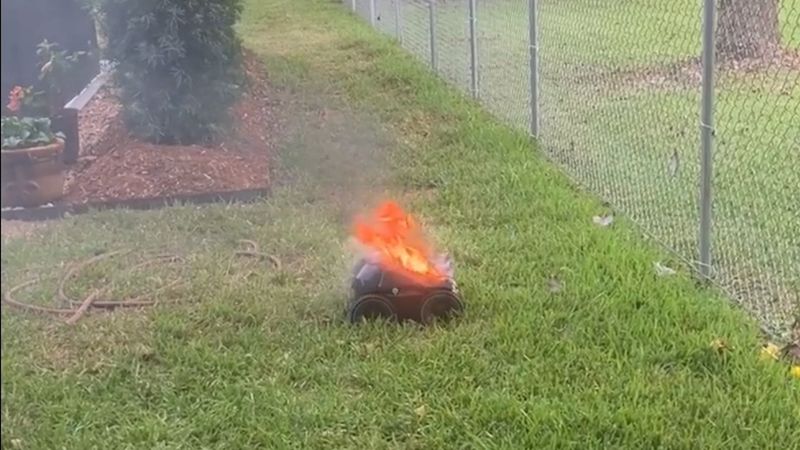Today’s article is for informational and reporting purposes only. All views and opinions are my own, based on publicly available information.
Update: Since posting, the Aiper Seagull Pro has officially been recalled by the U.S. Consumer Product Safety Commission. This is the 2nd recall for Aiper pool cleaners in the past few years.
The crackling sound of flames. The acrid smell of smoke. One Las Vegas family entered their own worst nightmare – their entire home engulfed in flames. Within minutes, generations of memories turned to ash. This is their story.
House Fire Allegedly Started by an Aiper Seagull Pro
The alleged culprit? A seemingly harmless Aiper Seagull Pro pool robot, charging quietly outside – until it wasn't. According to the homeowner, the lithium battery-equipped device caught fire while charging, going from helpful cleaner to hidden hazard in a matter of hours.
Hey there, I’m Justin, your resident pool aficionado. Today, I want to share a serious and devastating story about a cordless robotic pool cleaner that caught my attention. My hope? To help you avoid something like this happening in your home.
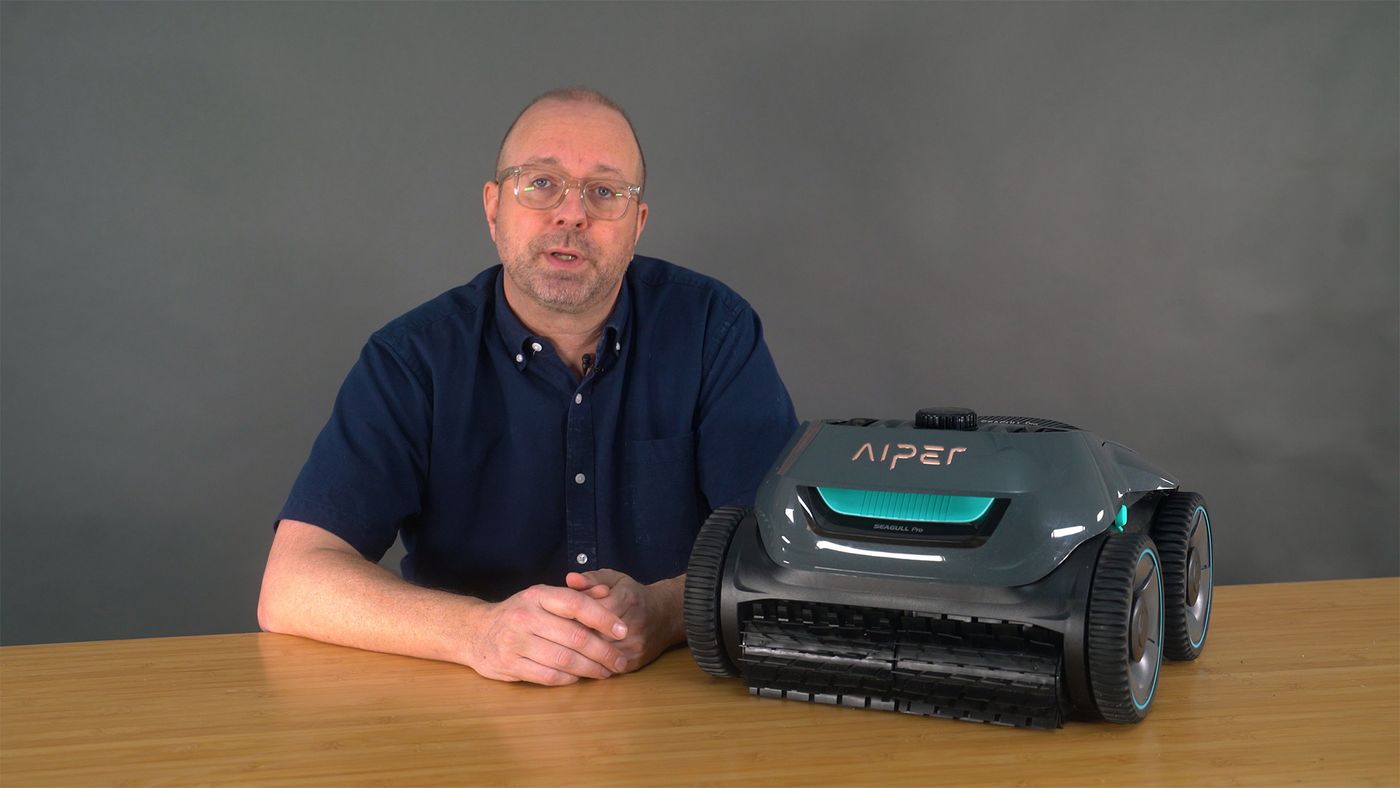
A quick disclaimer: this investigation is still ongoing, and no official determination of fault has been made. But I felt it was important to bring this to your attention. I’ve seen several clips online about this issue, and if sharing this can prevent even one home from facing a similar tragedy, it’s worth it.
Featured in Fox News 5
Bob Mosley of Las Vegas shared how his house caught on fire after charging his cordless Aiper pool cleaner. While he left it to charge, he claims it started a fire and said, "I knew it was the pool cleaner cause I could see it on the video."
In a wild series of videos posted on YouTube and Facebook, Bob shared the entire story online—from his house being filled with smoke to his cat, Pooka, being resuscitated by firefighters. The videos online are shocking. Thankfully, everyone, including Pooka, made it out safely and is doing well today.
But Bob’s story has exposed a major risk to cordless robot owners—it’s a serious wake-up call. Lithium-ion batteries in cordless pool cleaners can be incredibly dangerous. If you’ve been following my videos, you already know I don’t recommend cordless models. They’re far less powerful, and the daily need for recharging only ramps up the chances of something going wrong in your home. In my opinion, it’s a risk not worth taking.
Other Incidents
There are more concerning reports online, with two additional videos allegedly showing fires involving the Aiper Seagull Pro.

In one video, the cleaner is completely burned, reduced to a blackened shell. The damage is severe and hard to overlook.
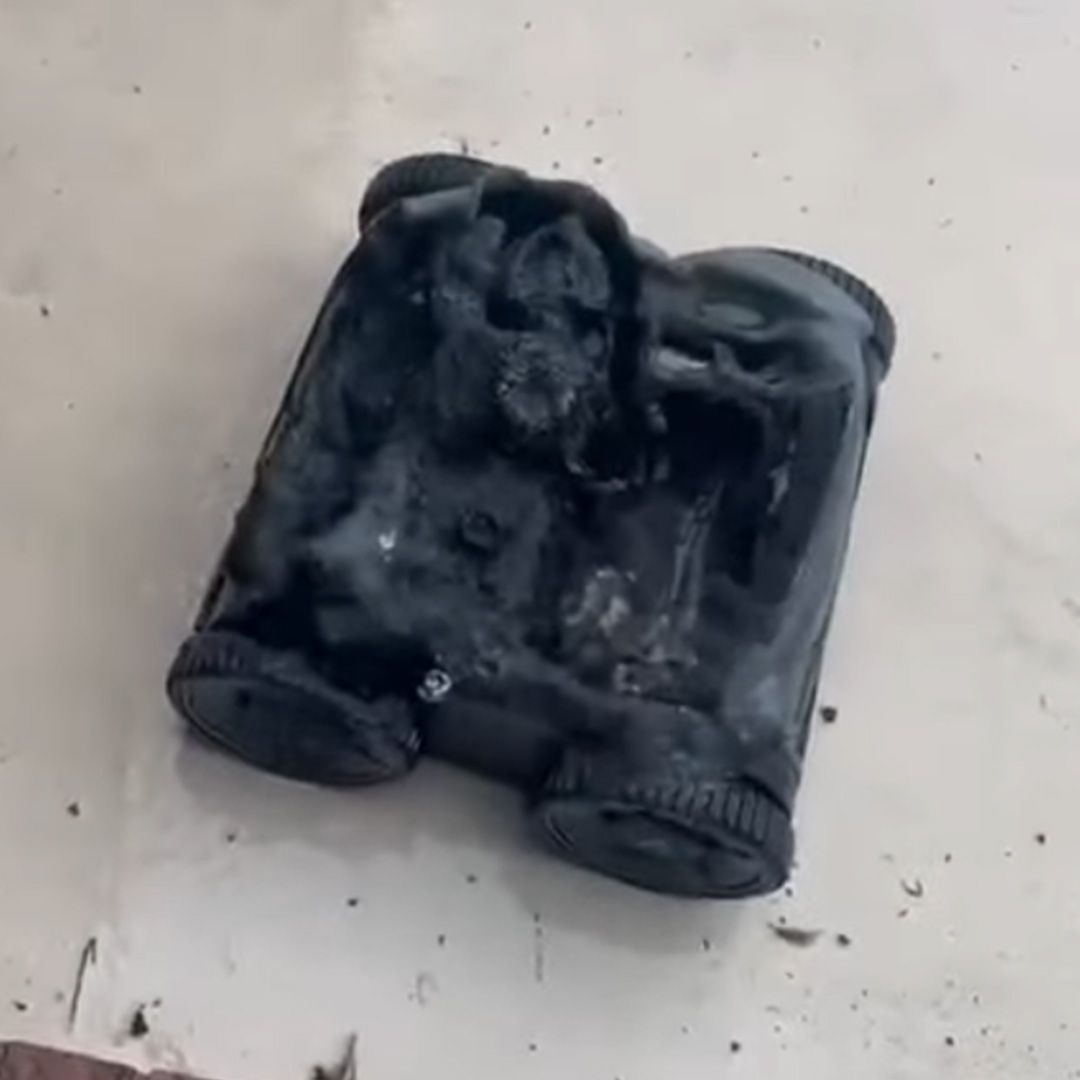
Another video shows the device fully engulfed in flames while sitting on the lawn. It’s a clear reminder of the risks tied to lithium-ion batteries in cordless pool cleaners.
US Consumer Product Safety Commission
Back in August 2023, the U.S. Consumer Product Safety Commission (CPSC) issued a recall for around 22,000 Aiper Elite Pro cordless robotic pool vacuums, citing burn and fire hazards.
The recall was prompted by 17 reports of the Aiper Elite Pro cordless pool cleaners overheating, including one incident that caused a minor burn injury. Consumers were urged to immediately discontinue use of the affected models and return them to Aiper for a free replacement. However, at the time of this video, the Aiper Seagull Pro—which has been linked to multiple online reports and videos showing fire damage—has not been included in the recall.

This really makes you stop and think about the safety of cordless robotic pool cleaners powered by lithium-ion batteries. Manufacturers need to do more to address these safety issues before they become serious problems. It’s not just about fixing what’s already gone wrong; it’s about being proactive and making sure any potentially hazardous models are taken off the market before someone gets hurt.
What’s even more concerning is that the Aiper Seagull Pro, despite multiple reports and videos showing it allegedly catching fire, hasn’t been recalled yet.
It makes you wonder—are these Chinese-made robots certified by safety laboratories before being sold on Amazon? And is consumer safety really being prioritized the way it should be? Why are these fires happening?
Lithium-Ion Batteries and the Dangers
Lithium-ion batteries are popular because of their high energy density and cheap price tag—they pack a lot of power in a compact size at a low cost, making them ideal for cordless devices like robotic pool cleaners. This is why you see so many cordless pool cleaners that are cheaper than their corded counterparts. However, this same feature can also be a drawback because of the overheating risk.
Thermal Runaway
Here’s how thermal runaway happens. When a lithium-ion battery overheats:
- The internal chemical reaction accelerates.
- This reaction generates more heat, further accelerating the process.
- The cycle continues until the battery reaches a critical point, resulting in an explosion or fire.
Why Cordless Robotic Pool Cleaners Are Especially Vulnerable
Cordless robotic pool cleaners, such as the Aiper Seagull Pro, are designed to operate in or near water—a challenging environment for lithium-ion batteries. Here’s what makes them particularly susceptible:
- Constant Water Exposure: Even though the batteries are sealed, prolonged exposure to water splashes and high humidity increases the risk of casing failure or internal moisture ingress.
- Outdoor Conditions: Heat, UV rays, and fluctuating temperatures can weaken the battery's structural integrity over time.
- Charging Risks: If a cleaner is improperly charged (e.g., left in direct sunlight or overcharged), it can exacerbate the risk of overheating.
How to Avoid a Fire in Your Home
To minimize these dangers, I’d recommend avoiding cordless pool cleaners with lithium-ion batteries altogether. There have simply been too many incidents for them to be worth it.
After testing dozens of robotic pool cleaners, corded models are far superior, and I’ve never seen any fire online because of it.
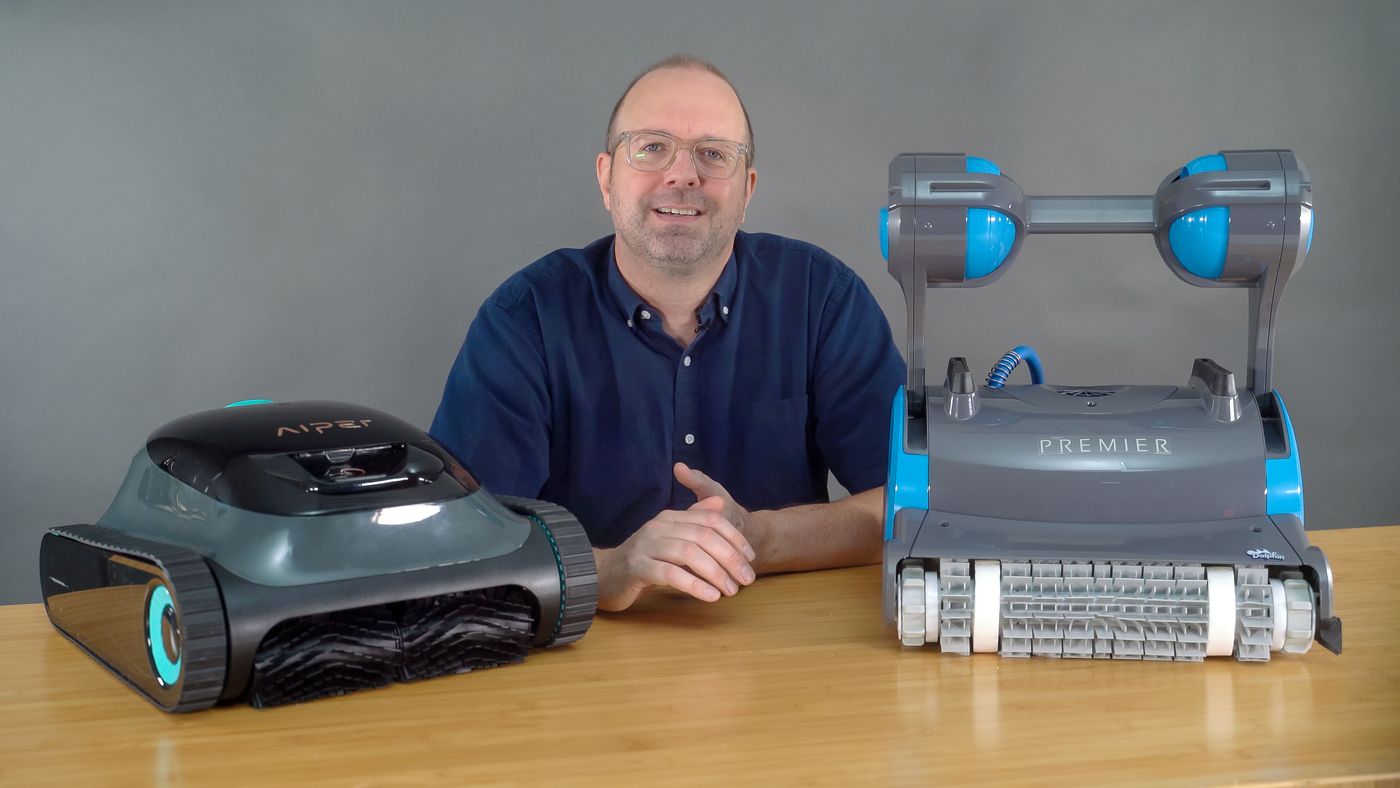
Cordless vs. Corded Pool Cleaners: Which Is Safer?
The rising popularity of cordless lithium-ion pool cleaners is largely driven by their lower price tag compared to corded models. However, opting for the cheaper option might cost you far more than just the initial savings—potentially even your home and your family’s safety.
Cordless robotic pool cleaners rely on lithium-ion batteries, which, as we’ve seen, can pose a significant fire risk.
Read my breakdown on corded vs cordless pool cleaners →
In contrast, corded pool cleaners do not use batteries, which eliminates the risk of battery-related fires. Corded models also provide much higher cleaning power and a much higher suction flow rate. This translates to better debris removal and more effective pool cleaning. And you won’t have to recharge them daily—you can set it and forget it with a Weekly Smart Timer.
Many corded robotic pool cleaners, such as those from well-established brands like Maytronics’ Dolphin or Aquabot, offer significantly higher cleaning performance than cordless models. These devices, which connect directly to a power source, don't face the limitations of battery life and can clean for extended periods without the risk of fire from overheating.
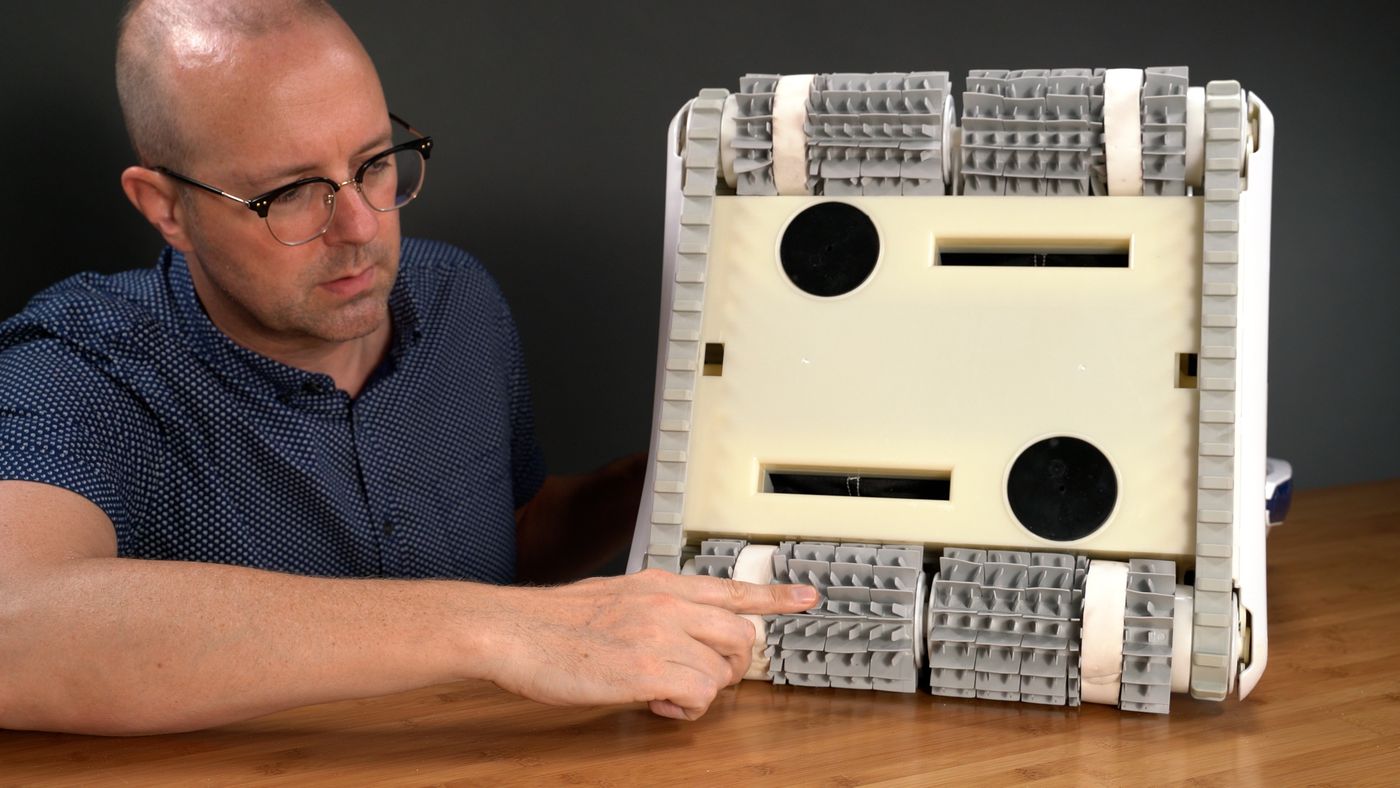
What to Look for When Buying a Robotic Pool Cleaner
When shopping for a robotic pool cleaner, always look for models with UL (Underwriters Laboratories) or ETL (Electrical Testing Laboratories) ratings. These certifications ensure that the product has undergone rigorous safety testing and meets industry standards for electrical and fire safety.
A UL or ETL rating is particularly important for devices operating near water. This certification may seem small, but it signifies robust waterproofing, proper insulation, and reliable construction. Choosing a cleaner with these certifications reduces the risk of electrical malfunctions, overheating, or potential hazards, giving you peace of mind while your pool stays clean.
When choosing a robotic pool cleaner, it’s essential to ensure that the entire robot has been thoroughly tested for safety—not just individual components like the power supply. Some manufacturers may advertise UL or ETL certifications on their products, but in reality, only the power supply or another small part has been certified, leaving the rest of the unit unverified and potentially unsafe.
A fully certified cleaner means that the motor, casing, battery (if included), and all electrical components have undergone rigorous testing for water resistance, fire safety, and overall durability. This comprehensive certification ensures that the cleaner can safely operate in the challenging, water-exposed conditions of a pool. This significantly reduces the risk of electrical faults or dangerous accidents. Always double-check the certification details to confirm that the entire robotic pool cleaner meets strict safety standards—not just a single component.
This is why choosing a reputable brand is so important. In my opinion and experience, some brands that are manufactured in China prioritize rock-bottom prices and may cut corners in their testing and design, and may lack important safety certifications.
For peace of mind and proven reliability, I’d consider trusted names like Dolphin, Polaris, or Aquabot—brands with long-standing reputations for producing safe and durable pool cleaners.
When it comes to safety, The Dolphin Brand by Maytronics appears to have the most comprehensive compliance with safety standards.
Read the Best Robotic Pool Cleaners of 2026 →
Dolphin robotic cleaners prioritize safety through rigorous UL and National Fire Protection Association compliance.
Every robot undergoes extensive testing to meet strict electrical safety standards from UL (Underwriters' Laboratories), NFPA (National Fire Protection Association), and IEC (International Electrotechnical Commission).
With premium components designed specifically to prevent shock hazards and fire risks, Dolphin ensures users can trust their pool cleaners to operate safely in water environments where electrical safety is the highest priority.
Final Verdict
The final verdict? Stick to corded pool cleaners.
They’re not only safer but also far more reliable over time. Corded models completely bypass the risks associated with lithium-ion batteries in cordless devices—such as overheating, fire hazards, and expensive battery replacements. While cordless cleaners may look more attractive at first glance, the ongoing pain points of daily recharging, reduced runtime, and potential safety risks make them a mistake you’ll likely regret in the real world.
Corded robotic pool cleaners, on the other hand, deliver superior cleaning performance, consistent power, and uninterrupted operation for extended periods. These models are built to withstand the demands of pool maintenance without the safety concerns tied to battery-powered alternatives. If you’re looking for peace of mind, outstanding cleaning results, and long-term reliability, a high-quality corded robotic pool cleaner is unquestionably the smarter and safer investment.
Legal Disclaimer
The following article is for informational and educational purposes only. The opinions expressed are based on publicly available information, personal observations, and reports found online. All statements about specific products, incidents, or brands are allegations unless officially confirmed by the manufacturer or regulatory authorities. This video is not intended to defame or harm the reputation of any brand or product. Viewers are encouraged to conduct their own research and refer to official sources for the most accurate information. We assume no responsibility for how the content is interpreted or used.
Your resident pool aficionado.
For over 5+ years, The Pool Nerd has been a leading source in the swimming pool industry. With years of experince owning a swimming pool, our hope here is to guide and help making owning a swimming pool easier.
